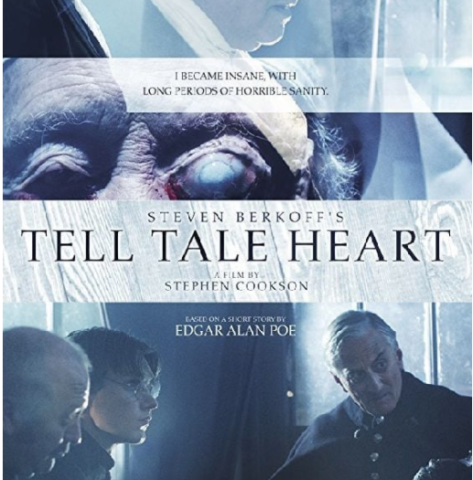The Art of Slighting
By Stacey Potts
“The simplicity of your character makes you exquisitely incomprehensible to me.” Dear reader, don’t worry, this isn’t addressed to you. This is one of the lines said by Gwendolen in The Importance of Being Earnest by Oscar Wilde. A master of writing a clever put-down and witty lines, he shares these skills with other authors. Here we take a slight look at the literary slight.
“He speaks an infinite deal of nothing.” Bassanio in The Merchant of Venice by William Shakespeare, 1597.
A merchant Antonio helps his friend court an heiress named Portia by taking out a loan. Not being able to pay it back, Antonio has to deal with the consequence. In this particular scene, Bassanio speaks to Antonio about their friend Grantiano, who never lets anyone speak over himself.
“Well, Ben Rogers, if I was as ignorant as you, I wouldn’t let on.” Tom Sawyer in The Adventures of Huckleberry Finn by Mark Twain, 1884
Set in the shores of Mississippi River, a boy named Huckleberry Finn is kidnapped by his own father because of Hucks’s $6000 savings. Huck manages to escape and seeks refuge with a boy named Jim also a runaway slave along the river on a raft to freedom. Tom Sawyer explains to Ben Rogers that following the ‘general rules’ only leads to one way of thinking and that is being ‘ignorant’.
“ I never saw anybody take so long to dress, and with such little result ” Algernon Moncrieff in The Importance of Being Earnest by Oscar Wilde, 1895.
A notorious play with its witty dialogue tells the tale of two men who aim to please the hearts of two women. Set in the Victorian era, Jack and Algernon, know the only way to do so is to create a made-up character named Ernest who the two women would love. In the second act of the play, Algernon marks out Jack’s flaws.
“I misjudged you… You’re not a moron. You’re only a case of arrested development.” Harvey Stone in The Sun Also Rises by Ernest Hemingway, 1926
A post-war novel, about three men who travel to Spain (Cohn, Harvey and Jake) and experience the bullfighting scene in Pamplona. They become emersed in Spanish culture with drinks, dancing, and music but their journey ends when they decide to go their separate ways. Cohn joins his two friends Harvey and Jake. Harvey asks Cohn if he could do anything, what would it be? Giving a quick response, Cohn replies he’d like to play football but Harvey isn’t amused so he proceeds to insult Cohn with this line.
“He was simply a hole in the air.” George Orwell, The Lion and the Unicorn by George Orwell, 1941
Notorious writer George Orwell’s essay, ‘The Lion and The Unicorn’ explores Wartime Britain during the Second World War. Shaped by his own opinions, this particular comment speaks about the politician Baldwin from the ruling class who now after being defeated isn’t worth the attention anymore.
“ All morons hate it when you call them a moron ” Holden Caulfield in The Catcher in the Rye by J.D. Salinger, 1951.
In this infamous coming of age novel, the main character, a teenager named Holden Caufield stays with his best-friend Stradlater. Holden, not holding his words back in a fight calls Stradlater a moron because he knows that is what gets to him.
“ You talk too damn much and too damn much of it is about you” Philip Marlowe in The Long Goodbye by Raymond Chandler, 1953.
Following the ‘death’ of Terry Lennox, Philip Marlowe a private investigator, who had had previous unintentional encounters a Terry Lennox finds himself in trouble. Terry regularly spotted drunk after nights out, and on one occasion Philip helped Terry with a ride to the airport. Later police accused Philip of helping Terry escape after the murder of his wife Sylvia. Philip Marlow acidic comment here is to Terry.
“You’re not worth the trouble it’d take to hit you. You’re not worth the powder it’d take to blow you up. You’re an empty, hollow fucking shell of a woman…” Frank Wheeler in Revolutionary Road by Richard Yates, 1961
Husband and wife April and Frank Wheeler, count themselves different from the rest of their fellow friends and family. Persuing their plans to move to Europe, it becomes disrupted by an unexpected pregnancy which April does not want to keep. Both of them have their own stories to tell but one of them ends in the hospital. Stopping himself from hitting his wife, Frank insults her instead after she admitted all the ‘terrible’ things she and other people thought about him.
“In my mind, Martha, you are buried in cement right up to your neck. No… right up to your nose… that’s much quieter.” George in Who’s Afraid of Virginia Woolf, Edward Albee, 1962
A play by Edward Albee sets its story around the lives of a middle-aged married couple, Martha and George. Their relationship is the opposite of sugar-coated and their newly invited guest couple join them for after-party drinks. As the night progresses, George and Martha entertain their guests by mocking each other in a humorous way. This time George insults Martha for calling him Georgie-boy in front of their friends.
“If looks could kill, you’d soon find out that yours couldn’t.” Harriet in After Claude by Iris Owens, 1973
In this witty first-person novel, Harriet seeks revenge from her French lover after being thrown out by him from their apartment. In one of their arguments, Harriet’s attention is drawn to Claude her boyfriend just staring at her.
“ May Your Genitals Sprout Wings and Fly Away ” Om the Tortoise in Small Gods by Terry Pratchett, 1992.
In Terry Pratchett’s ‘Discworld’ novel, a god named Om is stripped of his powers and turned into a tortoise. Speaking his mind he throws a curse on a character called Brother Nhumrod with this put-down.
If your brains were dynamite there wouldn’t be enough to blow your hat off. – Kilgore Trout in Timequake by Kurt Vonnegut, 1997.
A book set between science fiction and writer Kilgore Trout’s observations, he ‘accidentally’ becomes a hero. Kilgore, however, has a dark past, and because of this has developed a way of greeting or replying to people with this example.
“Stop worrying about growing old. And think about growing up.” George in The Dying Animal by Philip Roth, 2001
David Kepesh a professor, is fascinated by one of his students Consuela and he develops a fetish for her breasts. Due to their large age gap, professor David Kepesh can not pursue a relationship with her in fear of being found out by her family. George a friend of Kepesh knows all about his desire for the young student Consuela and he counsels Kepesh about his current behaviour.
“ Just because you have the emotional range of a teaspoon doesn’t mean we all have. ” Hermione in Harry Potter and the order of the Phoenix by J.K Rowling, 2003.
An ongoing story, the main character Harry enters his fifth year of Hogwarts School of Witchcraft and Wizardry but now has to defend the school from an evil rising from a Dark Arts teacher. Students and best friends, Hermonie, Ron, and Harry gossip about another student ‘s emotional personality. Hermonie however, disapproves of Ron sniggering and condemns him by calling out Ron with this insult.
Although not a quote from a book we leave you with a quote by Truman Capote to fellow writer Jack Kerouac
. “That’s not writing, it’s typing.”
This article was written by both Zélie Vandermeiren and Stacey Potts
Did you enjoy this article about the slight in literature? Why not read more about the importance of words with Reading Between the Lines or even Made It Up.





